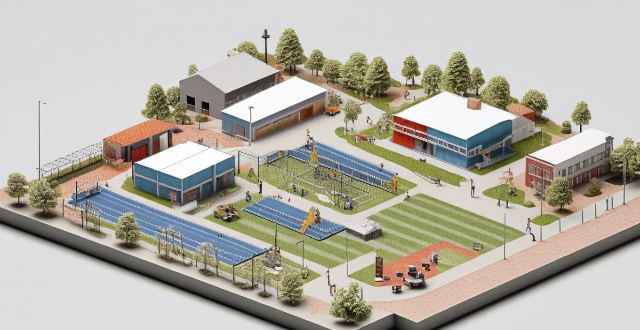Sporting events serve as a platform for promoting interfaith understanding and cooperation by breaking down barriers, encouraging dialogue, building partnerships, and promoting peace. Through shared passion for sports, principles of sportsmanship, mixed teams, celebration of diversity, joint community projects, interfaith leagues, peace through play initiatives, and role models, sports events can contribute to a more harmonious society where interfaith cooperation is the norm.

The Role of Sports Events in Promoting Interfaith Understanding and Cooperation
Introduction
Sporting events have long been recognized as a platform for promoting not only physical health but also social cohesion, cultural exchange, and interfaith understanding. This article explores how sports events can serve as a unifier, bringing people of different faiths together to celebrate the universal language of sport.
Breaking Down Barriers
*Common Ground through Competition*
Sports provide a common ground where individuals from diverse backgrounds can come together. The shared passion for a particular game or activity transcends religious differences, creating an environment where mutual respect and understanding can flourish.
*Rule of Sportsmanship*
The principles of fair play, respect for opponents, and teamwork are inherent in sportsmanship. These values resonate across cultures and religions, fostering a sense of unity among participants.
Encouraging Dialogue
*Mixed Teams and Activities*
Organizing mixed teams that include players from various faiths encourages direct interaction and communication. This setting allows individuals to learn about each other's beliefs and practices in a non-threatening context.
*Celebration of Diversity*
Multicultural sports events often include elements that celebrate the diversity of participants. For example, opening ceremonies might feature performances that showcase different cultural traditions, which educates spectators and athletes alike about various customs and faiths.
Building Partnerships
*Joint Community Projects*
Sports clubs and organizations can partner with local religious groups to host charitable events or community service projects. Such collaborations build strong relationships between different faith communities while working towards a common goal.
*Interfaith Leagues and Tournaments*
Creating interfaith leagues or tournaments provides structured opportunities for regular interactions between people of different faiths. Over time, these encounters can lead to lasting friendships and deeper understanding.
Promoting Peace
*Peace Through Play Initiatives*
Programs like "Peace Through Play" use sports as a tool to promote peace and reconciliation. By engaging youth in sports activities, these initiatives aim to teach conflict resolution and foster respect among different religious groups.
*Role Models and Ambassadors*
Athletes who actively promote interfaith harmony can serve as role models. Their influence extends beyond the playing field, encouraging fans and the broader community to embrace similar values.
Conclusion
*Long-Term Benefits*
While sports events may seem like mere entertainment, their potential to bring about significant social change should not be underestimated. The bonds formed on the field can translate into real-world scenarios, contributing to a more harmonious society where interfaith cooperation is the norm rather than the exception.
By leveraging the power of sports to unite rather than divide, we can create a future where understanding and cooperation across faiths are not just ideals but lived realities.